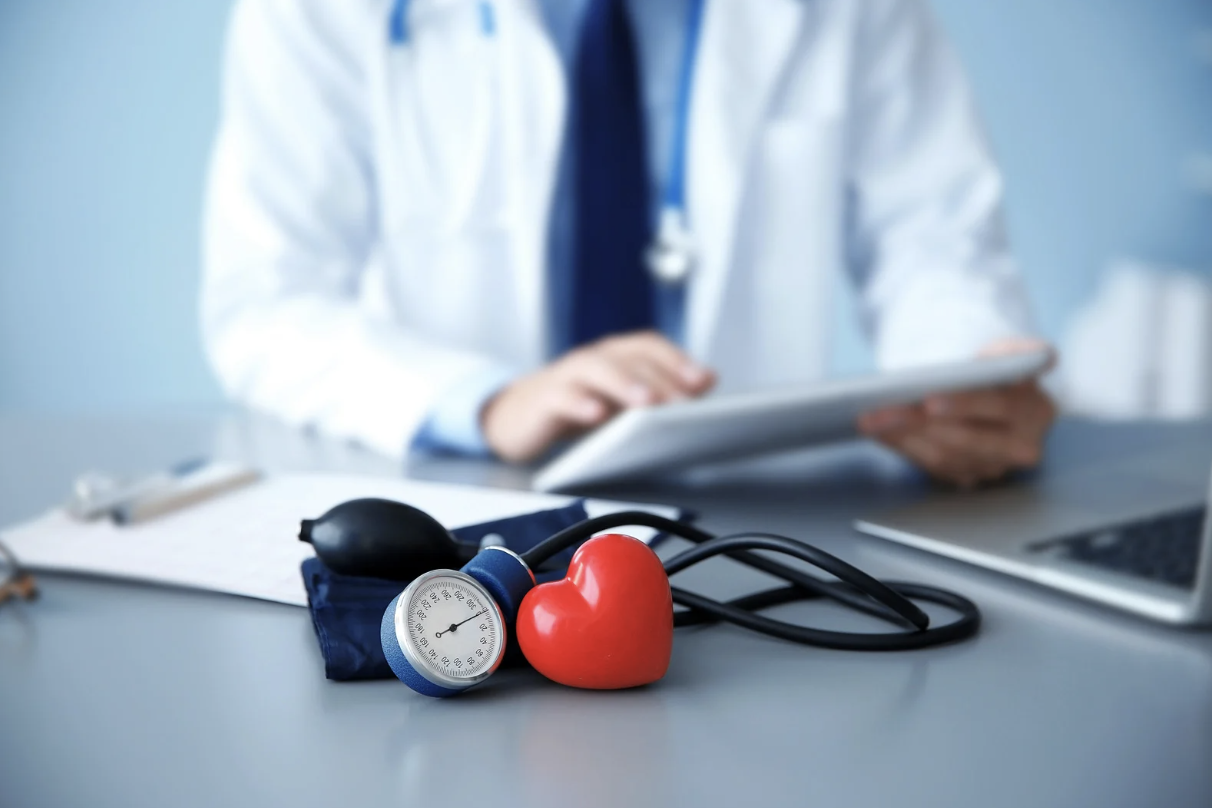Recognizing the signs of a heart attack early on can not only save lives, but also prevent serious after-effects.
Every year, heart attacks are responsible for many emergency room visits worldwide, underlining the prevalence and severity of this serious medical condition.
It's essential to understand the symptoms and know when to act.
With a little knowledge and vigilance, this medical emergency can be effectively managed.
Our aim is to provide you with the information you need to identify these alarming signs, so that you can act quickly and effectively.
What is a heart attack?
Medical definition of a heart attack
A heart attack, also known by the medical term myocardial infarction, occurs when the blood flow that brings oxygen to the heart muscle is severely reduced or completely cut off.
This is usually due to a blockage in one or more of the coronary arteries.
Without the necessary oxygen, heart tissue begins to die.
The severity of an infarction depends on how long the heart remains deprived of oxygen, and the extent of tissue affected.
Knowing this medical definition is crucial to understanding why every second counts in a crisis.
Differentiating between heart attack and angina pectoris
It's also essential to be able to distinguish a heart attack from other cardiovascular disorders that may present similar symptoms.
Angina pectoris, for example, is often mistaken for a heart attack.
It is characterized by chest pain due to a temporary reduction in blood supply to the heart.
Unlike a heart attack, angina is generally triggered by physical effort, and improves with rest or medication.
Understanding these differences is vital for a correct assessment of symptoms and an appropriate response.
Occurrence statistics and populations at risk
Heart attacks affect millions of people every year, affecting a wide range of age groups, but are most common in people over 50.
Factors such as a family history of cardiovascular disease, smoking, obesity, a high-fat diet, lack of physical activity, high blood pressure and diabetes increase the risk of developing this condition.
Awareness of these statistics enables everyone to assess their own risk and take appropriate preventive measures.
This first part of our discussion highlights the critical nature of a heart attack and underlines the importance of differentiating between the various conditions that can affect the heart.
The remainder of this article will examine the causes and symptoms of a heart attack, providing the tools needed to identify warning signs and the steps to take to seek medical help in a timely manner.
Causes and symptoms of a heart attack
Main causes of a heart attack
A heart attack, also known as a myocardial infarction, occurs when blood flow to a part of the heart is suddenly interrupted.
The main causes of this devastating condition often lie in the accumulation of cholesterol plaques in the arteries, a phenomenon known as atherosclerosis.
This accumulation can eventually lead to the formation of a blood clot, which blocks blood flow to the heart.
Risk factors include smoking, a diet high in saturated fats, diabetes, hypertension, high blood cholesterol, lack of exercise, obesity and chronic stress.
Some factors, such as a family history of heart disease, cannot be changed, but many others can be managed through healthy lifestyle choices.
Early symptoms and warning signs
Symptoms of a heart attack can vary from person to person, and some people experience no symptoms at all, a phenomenon particularly common among diabetics or the elderly.
However, classic symptoms include pain or a feeling of pressure in the center of the chest, which may last several minutes or disappear and then return.
This pain may spread to the shoulders, neck, arms or back.
Other signs may include shortness of breath, nausea, dizziness, unusual sweating or unexplained feelings of anxiety.
A notable symptom that can alert women is sudden pain in the lower back or stomach, often mistaken for something other than heart problems.
When should I seek medical help?
It's crucial to treat a heart attack as a medical emergency.
If you or someone around you shows symptoms of a heart attack, it's imperative to call the emergency services immediately.
Time is of the essence in the treatment of a heart attack; the faster the intervention, the greater the chances of survival and recovery.
It's also important to note that even symptoms that seem minor or disappear should be assessed by a healthcare professional.
Early diagnosis could be the key to saving a life.
Our clinic's approach to heart attacks
Initial diagnosis and tests used
At Centre Cardio Laval, our first step when faced with a patient presenting symptoms of a heart attack is an urgent medical evaluation.
This evaluation usually includes an electrocardiogram (ECG), which measures the heart's electrical activity and helps detect irregularities in its rhythm and structure.
Other diagnostic tests include blood tests, which can detect the presence of cardiac enzymes released when part of the heart is damaged.
An imaging test, such as cardiac ultrasound, can also be used to observe heart structures in detail and determine the extent of infarct damage.
Available treatments and interventions
Once the diagnosis of a heart attack has been confirmed, our medical team reacts quickly to restore blood flow to the heart.
Depending on the severity and location of the obstruction, this can be treated by medication, which may include thrombolytic drugs to dissolve the clot, or by more invasive procedures such as angioplasty.
The latter involves the use of a small balloon to open blocked blood vessels, and may include the placement of a stent to keep the artery open.
Post-crisis management is just as crucial to the recovery and prevention of future crises.
This often includes lifestyle modifications, medication to manage cardiac risk factors, and regular follow-up to monitor and maintain the patient's heart health.
Prevention tips to reduce risks
🍎 Adopt a balanced diet: To prevent the risk of heart attack, a healthy diet is crucial. Choose foods rich in fiber, fruits and vegetables, and limit consumption of saturated fats and added sugars. The intake of omega-3s, found in oily fish such as salmon and sardines, is also recommended for its beneficial effects on cardiovascular health.
🏃 Exercise regularly: Physical activity plays a key role in preventing cardiovascular disease. We recommend at least 150 minutes of moderate exercise a week, such as brisk walking or cycling. Exercise helps maintain a healthy weight, reduces stress and improves overall heart health.
🍻 Limit alcohol consumption and stop smoking: Excessive alcohol consumption and smoking are significant risk factors for heart disease. Reducing alcohol to moderate levels and quitting smoking can greatly improve your cardiovascular health and reduce your risk of heart attack.
🧠 Manage stress effectively : Chronic stress can contribute to heart problems. Relaxation techniques, meditation, yoga and spending time on your hobbies can help reduce stress.
The importance of regular medical check-ups
✔️ Regular consultations : Regular visits to your doctor can detect and treat problems before they become serious. Regular monitoring of cholesterol levels, blood pressure and other vital indicators can prevent the development of heart disease.
✔️ Specific cardiac controls : Depending on your risk profile, tests such as an electrocardiogram (ECG), echocardiogram or other examinations may be recommended to monitor the condition of your heart more accurately.
✔️ Family and personal risk assessment : If you have a family history of cardiovascular disease, tell your doctor. Preventive measures and appropriate follow-up can be envisaged.
Post-diagnosis lifestyle adaptation
🍎 Modification of eating habits : Following a diagnosis of cardiac risk, it may be necessary to review your diet. Reducing saturated fats and sugars, increasing fiber and adopting a Mediterranean diet may be beneficial.
🏃 Increased adapted physical activity : Depending on your condition, specific exercises may be recommended to improve your heart health without risk.
🧠 Psychological follow-up : The news of a cardiac risk can be an emotional shock. Psychological support can help you deal with the news and its implications.

Contact us!
Recognizing and reacting in time to the signs of a heart attack can save lives.
At Centre Cardio Laval, our team of specialists is here to help you diagnose, treat and prevent cardiovascular disease.
If you notice any worrying symptoms or would simply like to have a check-up, don't hesitate to contact us.
Taking care of your heart is essential, and we're here to support you every step of the way.
To make an appointment, visit our site today and keep your heart healthy for years to come. 🖥️




